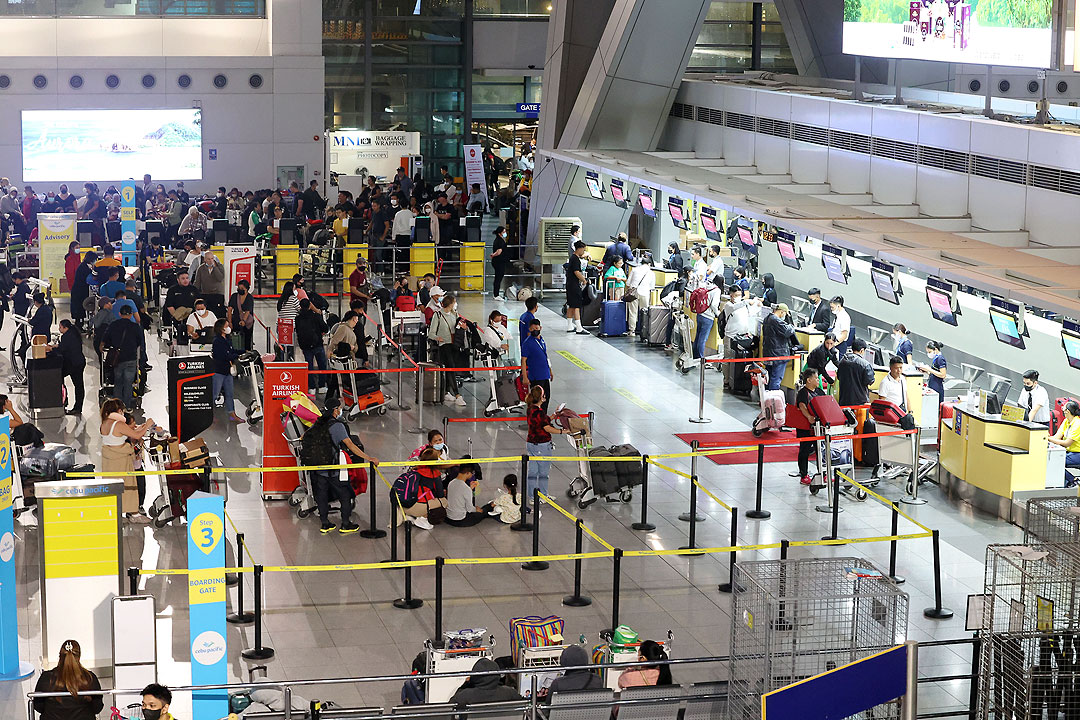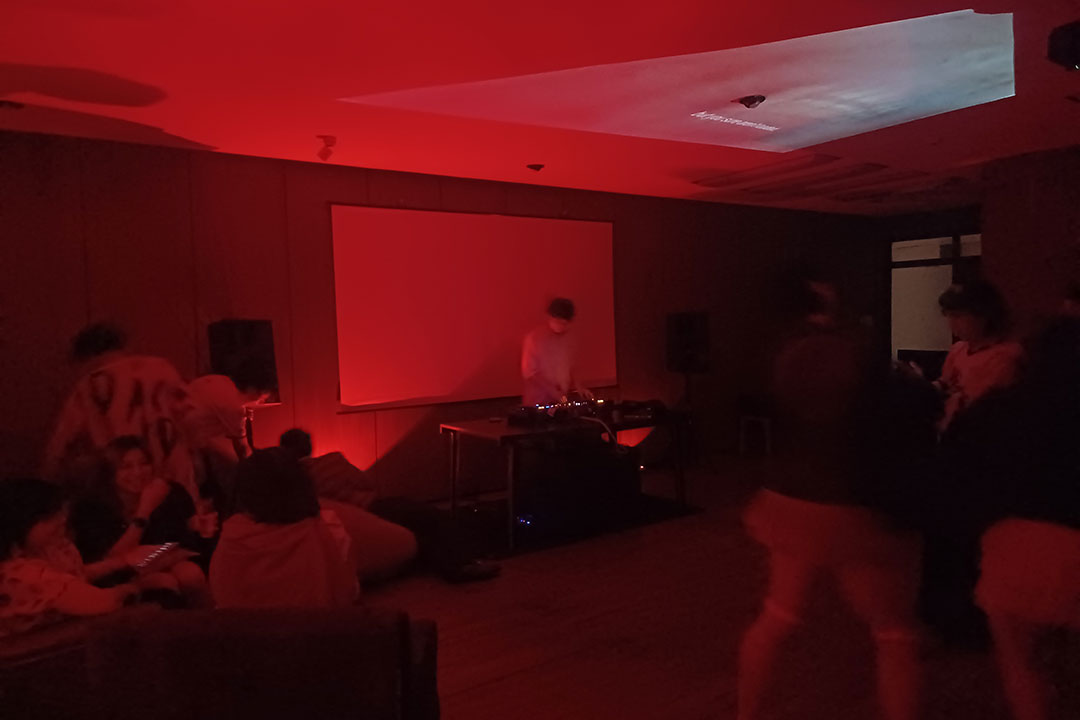
Upgrade to High-Speed Internet for only ₱1499/month!
Enjoy up to 100 Mbps fiber broadband, perfect for browsing, streaming, and gaming.
Visit Suniway.ph to learn
 Passengers are seen at the departure lobby of the Ninoy Aquino International Airport (NAIA) Terminal 3 in Pasay City. — PHILIPPINE STAR/MIGUEL DE GUZMAN
Passengers are seen at the departure lobby of the Ninoy Aquino International Airport (NAIA) Terminal 3 in Pasay City. — PHILIPPINE STAR/MIGUEL DE GUZMANBy Chloe Mari A. Hufana, Reporter
A GROUP of lawyers challenged the validity of the Ninoy Aquino International Airport (NAIA) concession agreement before the Supreme Court (SC) on Monday, claiming that the deal violated the Constitution and the Public-Private Partnership (PPP) Code.
The petitioners included Joel Ruiz Butuyan and Roger R. Rayel of the Center for International Law (Centerlaw); former Environment Undersecretary Antonio Gabriel M. La Viña; and law deans Ma. Soledad Deriquito-Mawis of the Lyceum of the Philippines and Jose Mari Benjamin Francisco U. Tirol of Iloilo’s University of San Agustin.
The named respondents were Cabinet members, represented by the Executive Secretary Lucas P. Bersamin; the Department of Transportation; the Manila International Airport Authority (MIAA); and the New NAIA Infrastructure Corp. (NNIC), the concession holder.
The petitioners urged the Supreme Court to declare the concession contract invalid and to issue provisional remedies to halt its implementation.
“We are here dealing with people’s hard-earned money, of which they are already being deprived every day without due process of law. Given the circumstances, the extreme urgency of and paramount necessity for a temporary restraining order, writ of preliminary injunction or status quo ante order issued by the Honorable Court cannot be overstated,” according to the 182-page petition read.
The plaintiffs claim the deal was not compliant with the PPP Code.
The NAIA Concession Agreement was hailed by the government in 2024 as the “fastest PPP proposal in Philippine history.”
The project received approval from the National Economic and Development Authority in June 2023, just 47 days after submission. The bidding process concluded on Dec. 27, 2023.
The contract was awarded to NNIC in February 2024, followed by the signing of the concession agreement in March.
NNICGeneral Manager Angelito A. Alvarez did not immediately respond to a Viber message seeking comment.
MIAA, NAIA’s regulator, General Manager Eric Jose C. Ines told BusinessWorld via Viber that the authority has not received a copy of the petition.
The plaintiffs claimed that the PPP Code, which took effect in December 2023, was not followed during the bidding process, noting that the Office of the Solicitor General and the Office of the Government Corporate Counsel had advised the MIAA that the project must comply with its provisions.
“Instead of going back to the drawing board and securing the necessary approvals under the newly enacted law, the MIAA could not be bothered by it nor was deterred by mere opinions from the legal counsels of government bodies and instrumentalities,” they added.
The petition claims that the deal also lacks clarity on how the concessionaire, NNIC, is to be compensated.
“The MIAA charges fees, rentals, and other charges to users of its facilities, which will be paid ultimately by the passengers and consumers,” the petitioners said in a separate statement.
“From the income from these fees and charges will come the compensation for the concessionaire. However, the fees and charges must undergo a ladderized rate-fixing approval process (that) includes public participation as an integral process,” they added.
“This component of the constitutional right to due process of the law was not followed and was, in fact, done away with for future increases.”
The Revised Administrative Order No. 1 (RAO1), which governs fees and charges for NAIA, was also not approved until September 2024, more than six months after the project was awarded to NNIC.
“Anomalously, RAO1 was adopted and passed without any changes as the draft that was first issued on Dec. 4, 2023. This notwithstanding the objections and clarifications from relevant stakeholders, which made the public hearing held therefor a mere formality,” the petitioners added.
The petition also questioned the financial terms of the agreement, under which NNIC promised to pay MIAA 82% of revenue, along with a P2-billion annual payment and a P30-billion performance bond over the 15-year contract term.
The petitioners warned that, should the concession agreement be upheld, “it will open the floodgates to open and institutional connivance between the government and business conglomerates to partner in operating public utilities, government monopolies, and government facilities, not with an eye to protect(ing) the public interest by providing affordable, accessible, and efficient public services.”
“The future of public utilities, government monopolies, and the operation of government facilities will no longer be dictated by the lowest and most affordable rates,” they added.
They urged the Court to consider the long-term implications of validating such an agreement, which they claim could compromise the affordability, accessibility, and efficiency of public services.
They also sought the immediate return of all sums the respondents received or collected.




